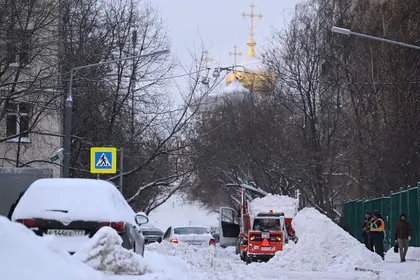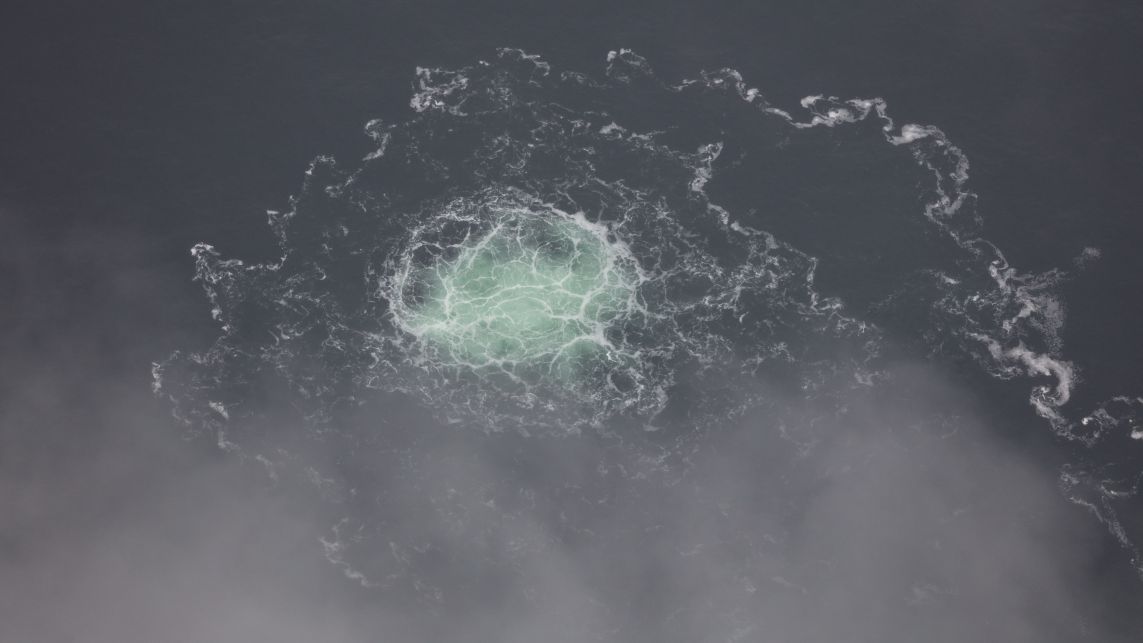A series of pipe bursts and boiler room malfunctions have taken out heating for residents in Solnechnogorsk, a town 70 km northwest of Moscow, which has led to mocking comments from locals and debates related to government priorities during Russia’s invasion of Ukraine.
A video on social media shows a heating pipe spraying hot water into the air. The incident allegedly took place in Solnechnogorsk.
JOIN US ON TELEGRAM
Follow our coverage of the war on the @Kyivpost_official.
VIDEO from Solnechnogorsk app 60km NW of Moscow, showing heating pipes leaking and spraying hot water. Most of this city is claimed to be without heating. #Ukraine #Ukrainewar #UkraineRussiawar #Russia https://t.co/odCHywifkc pic.twitter.com/wh42ao4u6n
— raging545 (@raging545) January 16, 2024
According to a local news outlet, the leakage was noticed as early as Jan. 9 and appeared to have taken place at multiple points of the heating network, with another pipe leakage near a kindergarten reported on Jan. 14.
Moscow Region Governor Andrey Vorobyov said on his Telegram channel that the main repair work has been completed, and multiple mobile boilers have been installed in the city, providing “an uninterrupted supply of heat and hot water to 135 apartment buildings, or 17,800 residents.”
However, a later local news report said hot water remained unavailable for those on Leningradskaya Street due to work at the nearby boiler room.
The incidents have sparked a series of debates among locals, with some complaining of longstanding negligence.
Under an update on a local channel, a resident wrote: “As long as the elections are held, the grass won’t grow there.” Coincidentally, the collection of signatures to support incumbent President Vladimir Putin’s nomination also took place in Solnechnogorsk today.

Norway Seizes Russian-Crewed Ship over Suspected Cable Damage
A pro-war Russian asked the resident to be patient in response.
“I hope and believe that this will not affect the results in any way. We need to effectively continue the SVO [special military operation] until all goals are fully achieved.
“What about comfort? You need to be a bit patient,” he said.
In another comment, he said: “There’s not enough money for everything. You need to choose priorities. We Russians, of course, choose the SVO.”
The first user seemingly agreed with the war, but responded: “War is war, but the rear must also be secured!”
Meanwhile, another local pointed out similar issues with the infrastructure, even in the summer.
“In winter there is no heating, in summer there will be no water for a month, or even two, instead of the required two weeks,” she said, in reference to the hot water supply maintenance that takes place every summer in post-Soviet nations.
A user known as Vladimir pointed out that longstanding negligence is to blame for the incidents.
“In other words, these steps [the use of mobile boiler rooms] confirm that our current boiler houses have become rubbish due to the disregard of the owner (the city administration) and the lack of proper maintenance, which is paid for by the population,” he said.
A recent Kyiv Post report covered a similar incident caused by malfunctions at a munitions factory that took place south of Moscow, which led to small protests as residents were left freezing for days.
While heating pipe bursts and boiler room malfunctions are not unheard of in both Ukraine and Russia, the recent surge of such cases in Russia is likely a result of decades of disrepair, which can be attributed to prolonged government negligence and, in some cases, corruption.
Svetlana Razvorotneva, deputy chairman of Russia’s State Duma Committee on Housing and Communal Services, admitted that 80 percent of utility networks were in need of repair or replacement.
Even though public utility outages might not be a direct result of Russia’s invasion of Ukraine, the continued lack of public funding – and according to Russia’s new federal budget, a cut in public spending in favor of the war – could stir up further dissent within the Russian population.
You can also highlight the text and press Ctrl + Enter










